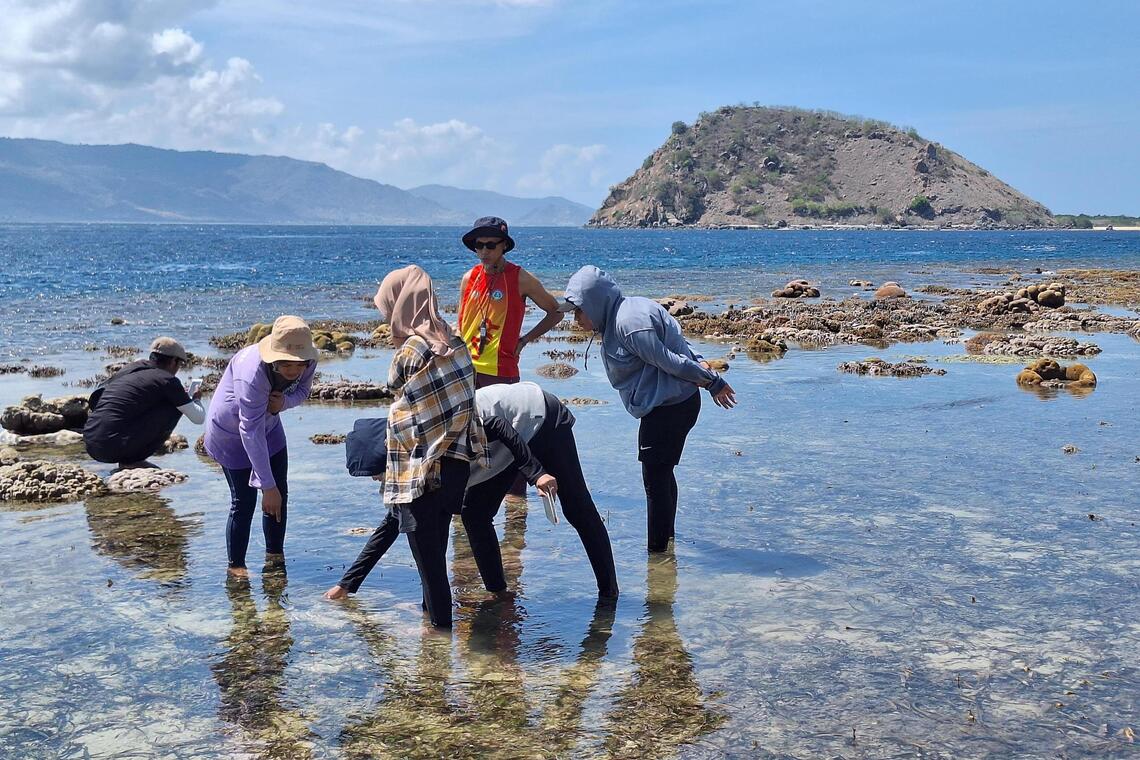SINGAPORE – A Singapore-based impact investment firm, Octave Capital, on Sept 18 joined forces with Norwegian venture capital company Katapult Ocean to raise funds for its Asia Ocean Fund, which aims to invest in start-ups that support ocean health in the region.
Octave Capital is backed by family business TPC (Tsao Pao Chee), which has roots in the maritime industry.
Oslo-headquartered Katapult Ocean is among the world’s most active ocean impact venture fund managers. It has since 2018 invested in over 80 ocean-tech start-ups across more than 25 countries, in areas such as sustainable seaweed production and offshore wind power infrastructure.
The Straits Times reported in June
that Katapult Ocean will be launching the Asia Ocean Fund in Singapore in early 2026, with a target of raising US$50 million.
With Octave Capital’s participation, the fund now aims to raise US$75 million (S$96 million).
The fund will be equally co-managed by the two firms.
The partnership agreement between the two firms was inked on Sept 18 during Impact Week, a global conference organised by TPC touching on topics relating to sustainability and well-being.
Ms May Liew, the chief executive and executive director of Octave Capital, told The Straits Times on Sept 15, ahead of the signing, that fund-raising efforts will commence following the announcement.
“We believe the opportunities will appeal to family offices, foundations and shipping companies,” she said.
Ms Liew added that the Asia Ocean Fund will aim to start investing in start-ups within the next 12 to 18 months. It has a target of making more than 20 investments over the next five years.
The fund will focus on six key areas – maritime decarbonisation, ocean renewable energy, green shipping infrastructure, ocean biodiversity and restoration solutions, circular resources, and sustainable aquaculture and marine biotechnology.
Circular resources refer to the concept of promoting the reuse and recycling of materials like plastics so that they do not end up in the oceans.
Existing estimates suggest that five Asian countries – China, Indonesia, the Philippines, Thailand and Vietnam – account for up to 60 per cent of the plastic waste leaking into the ocean.
In a joint statement, both firms noted that the Asia Ocean Fund unites Octave Capital’s regional presence and deep maritime expertise with Katapult Ocean’s global leadership as the world’s most active ocean impact venture fund manager.
Ms Liew said Octave Capital was introduced to the fund during the UN Ocean Conference, which was held in Nice, France, in June.
“That’s where discussions kicked off, and it made sense for both our organisations to come together,” she said.
Noting TPC’s heritage in the shipbuilding and maritime sector for over 120 years, Ms Liew added: “The maritime sector depends on a healthy ocean. Investing in maritime decarbonisation and ocean health is a good opportunity for us to partner Katapult on the Asia Ocean Fund.”
Mr Tharald Nustad, the founder of Katapult Ocean, told ST that through the company’s work raising funds for oceans globally, it has seen growing interest in Asia’s ocean economy from investors around the world.
He added that the new fund will also provide opportunities for technologies developed in Europe, where the ocean innovation space is more mature, to be tested in Asia.
Mr Nustad pointed to the wide gamut of ocean innovations out there that can help contribute to climate action, such as offshore renewable energy generation, or innovations that can make ships more fuel-efficient by preventing biofouling.
Biofouling refers to the accumulation of marine creatures like barnacles on a ship’s submerged surfaces, causing increased drag, fuel consumption and emissions.
Mr Jonas Skattum Svegaarden, the chief executive of Katapult Ocean, said: “Asia’s blue economy holds immense promise, but what’s been missing is the bridge between innovation and capital.”
He added that the Asia Ocean Fund could be that bridge, as it funds early-stage ventures. This de-risking can attract broader investment, he said.
“This could empower entrepreneurs and the Asian ecosystem to drive the global transition towards a thriving ocean economy. We’re proud to co-manage this pioneering effort with Octave Capital,” Mr Svegaarden added.
The launch of the Asia Ocean Fund comes amid growing interest from the private sector in the blue economy. The World Bank defines the blue economy as the sustainable use of ocean resources for economic growth, improved livelihoods and jobs, while preserving the health of the ocean ecosystem.
Ahead of the UN Ocean Conference in June, some of the world’s top financial institutions
gathered in Monaco
to spotlight the economic opportunity of investing in the health of the ocean and the perils of inaction.
Other developments show that the blue economy is picking up in South-east Asia.
1,000 Ocean Startups coalition Asia-Pacific
was launched in Singapore as the regional chapter of a World Economic Forum initiative that started in 2021.
The coalition aims to help start-ups in the region scale up ideas or business models that are profitable or have the potential to generate profit, while also contributing to ocean health.

